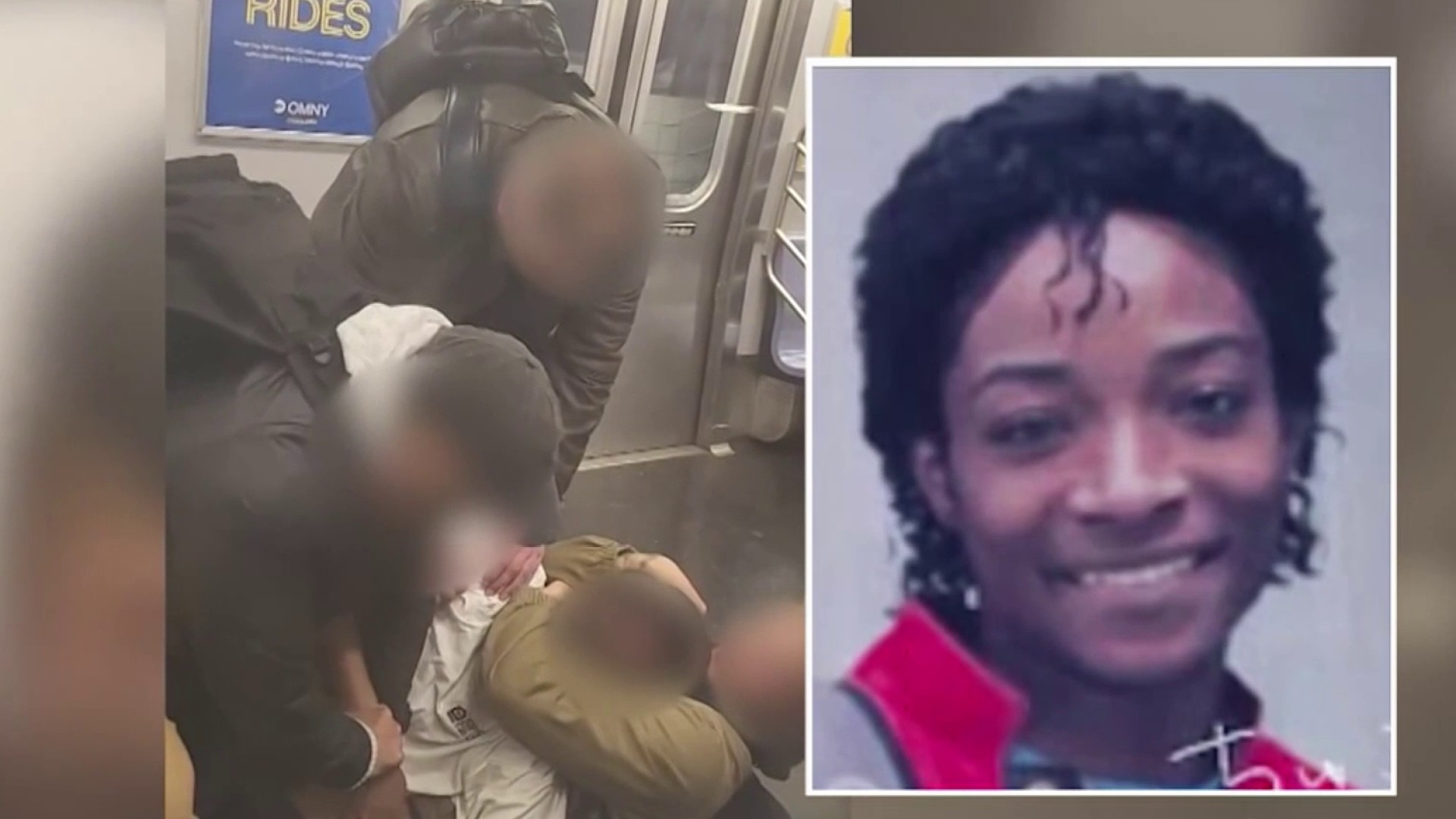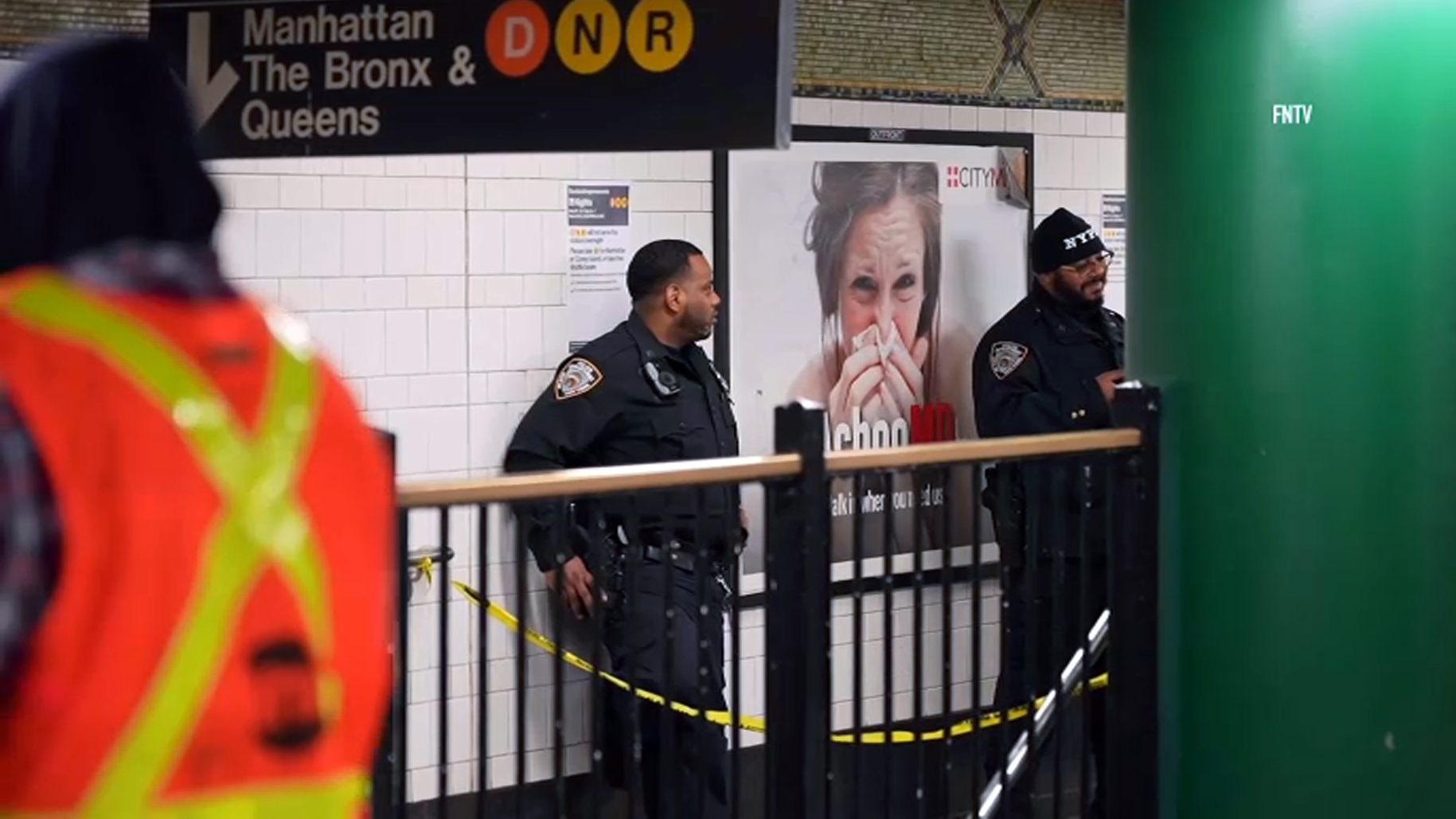What to Know
- 30-year-old Jordan Neely died on a train at the Broadway-Lafayette station in Manhattan Monday after allegedly threatening passengers and being put into a chokehold by a rider; that rider was questioned by the NYPD and later released from custody
- The medical examiner's office ruled Neely's death a homicide, which incited a debate around whether the rider's actions were justified defense or vigilantism; he and his attorney have declined comment
- A senior prosecutor with the Manhattan district attorney's office is looking into the case, sources say, and the NYPD is asking anyone with footage or images of what led up to Neely's death for help
A Manhattan grand jury will hear the case of the subway chokehold death of Jordan Neely to determine whether criminal charges will be brought against the 24-year-old accused of killing him this week, two sources familiar with the matter tell News 4.
It wasn't immediately clear Friday when the grand jury would be presented those details. The news comes amid mounting pressure on the district attorney's office to file charges in the case, which has sparked debate over whether the rider who allegedly took him down acted in just defense against disorder or criminally.
Neely, a homeless man, had been threatening passengers aboard a train at the Broadway-Lafayette station Monday afternoon, according to the NYPD. A 24-year-old rider intervened and put Neely in a headlock. He was questioned by the NYPD and later released from custody. Afterward, the medical examiner's office ruled the case a homicide.
Get Tri-state area news delivered to your inbox.> Sign up for NBC New York's News Headlines newsletter.
No charges have been filed in the case at this time. Police and prosecutors say they are still working to determine what happened before Neely, who was 30, died. A senior prosecutor was said to be looking into the matter, and Gov. Kathy Hochul said a day ago she was pleased that the district attorney's office was looking into the case.
Amid the ongoing investigation, the case has incited calls for the 24-year-old initially hailed as a good Samaritan for intervening to be arrested in the death of Neely, who struggled with mental health. A GoFundMe established by an aunt to pay funeral expenses raised more than $36,000 by Friday morning, less than 24 hours after being posted.
Neely's family has retained legal representation with Mills & Edwards LLP.
"I took this case because 15 minutes is too long to go without help, intervention and without air. Passengers are not supposed to die on the floor of our subways," attorney Lennon Edward said in a statement. "We understand our current times have created a heightened sense of fear (sometimes reasonable, sometimes not.) However, there has to be a clear line of when lethal force can be used by anyone, including civilians."
Lawyer Donte Mills, also representing the Neely family, says the 24-year-old in this case crossed the line.
"We have people being killed for ringing the wrong doorbell, pulling in the wrong driveway and screaming out in desperation on the subway. We cannot let that stand," Mills said. "Mr. Neely suffered from mental illness which began at age 14 when he experienced the brutal murder of his mother. It is a tragedy for all of us to know that Jordan Neely’s life was also cut short. Mills & Edwards is committed to holding accountable the MTA and Neely’s killer."
In the absence of video showing what might have precipitated the attack, many were reserving judgment.
Mayor Eric Adams said earlier in the week there were too many unknowns to judge the rider's behavior at this point and echoed those sentiments on Thursday, saying that he has "a responsibility for this entire city and I have faith in the criminal justice system, and I'm going to let the process take its place."
Janno Lieber, head of the MTA, weighed in for the first time Friday, saying he would wait for prosecutors to do their work.
"But we're gonna renew our efforts to make sure that people understand that when you're in the subway together, they're going to be challenges, when you're in the public space together there are going to be challenges, but we have to find a way to deescalate," the CEO said.
The 24-year-old rider has repeatedly declined requests for comment. His attorney also declined comment. Several reports stated that he is a former Marine, which a former NYC prosecutor said could hurt a self-defense claim.
Marine recruits are routinely taught about executing and defending against chokeholds, which can render someone unconscious in as few as eight seconds, according to a military manual revised in 2020.
Meanwhile, the NYPD is asking for the public's help with its investigation.
Law enforcement sources with knowledge of the case said Neely had a lengthy criminal history, with charges including assault and disorderly conduct. Those who knew him described him as a well-known Michael Jackson impersonator.
Manhattan Borough President Mark Levine recalled seeing Neely perform many times. Levine said he always made people smile.
Jordan Neely Death Timeline
The NYPD said it was called to the NoHo station around 2:25 p.m. Monday after a report of a physical fight in a northbound F train.
Witnesses and law enforcement sources said Neely got on the train and started acting very aggressively toward other riders, threatening to harm them. Police sources told NBC New York that Neely purportedly told riders on the train that he wanted food, that he wasn't taking no for an answer, and that he would hurt anyone on the train.
"The man got on the subway car and began to say a somewhat aggressive speech, saying he was hungry, he was thirsty, that he didn't care about anything, he didn't care about going to jail, he didn't care that he gets a big life sentence," said Juan Alberto Vazquez, who was in the subway car and recording part of what happened afterward. "That 'It doesn't even matter if I died.'"
Vazquez said he was scared, and believes others on the train were as well. It was then that a 24-year-old rider came up behind Neely and put him in a chokehold, holding him on the ground. Two other men stood over them and also helped subdue him, video showed.
"If there was fear, the people who...were there where he separated everything, moved from their place. I stayed sitting in my place because it was a little further away, but obviously in those moments, well, one feels fear. One thinks he may be armed," Vazquez said.
He said that the chokehold lasted about 15 minutes as they waited for police to respond, and it was held even as the train stopped at the subway station and the doors opened. That's when Vazquez said most of the people who were inside the train car left, with a few exceptions, including the three who had been working to subdue Neely.
It was not clear why passengers had moved to restrain Neely. One witness, Vazquez who was on the train and recorded Neely becoming unconscious as he was restrained, said that while Neely was acting aggressively and threw his jacket, he hadn’t attacked anyone.
Neely was unconscious on the car floor when officers arrived, and died at the scene.
Vazquez said no one thought the man would die, even after he went limp.
Adams has said that the incident underscores what he says is a need to remove people with mental illness from the transit system — a push he began with Democratic colleague Hochul in the early days of his administration.
The governor's office said that Safe Option Support (SOS) teams in the subway have conducted more than 6,800 outreach encounters and have enrolled 838 individuals into interventions services.
The lethal risks of chokeholds led New York City to ban police officers from using them. An officer was fired for using a chokehold on Eric Garner, a Black New Yorker whose dying words “I can’t breathe” became a chant in protests against racial injustice.
A U.S. Department of Justice website called chokeholds “inherently dangerous” and said that they have “too often led to tragedy.”



